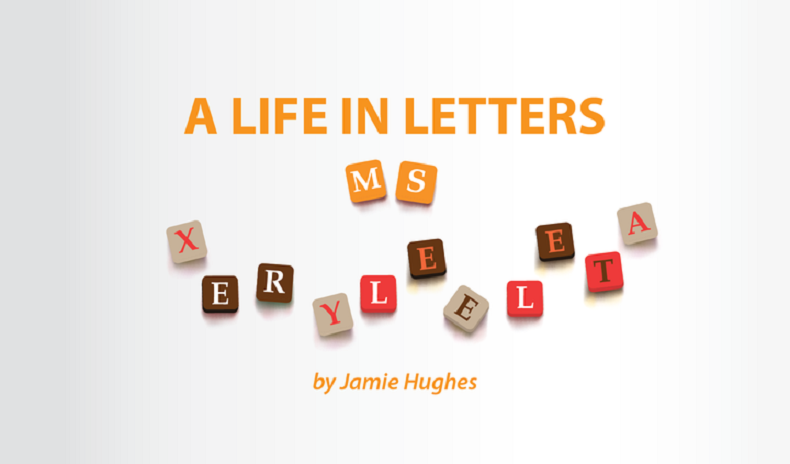Conference Was a Reminder of Why We Must Continue to Create Own Stories


Last week, I attended the Association of Writers & Writing Programs (AWP) conference in Washington, D.C. I had the opportunity to meet many fine folks who are hard at work creating everything from alphabet books for children to poetry protesting xenophobia. I attended panels on editing, writing micro-fiction, and creating a sense of place using imagery. I listened to some amazing writers—Ann Patchett, Karen Joy Fowler, Jennifer Egan, and Chimamanda Ngozi Adichie, to name just a few—discuss the craft and what it means to write well. And I was happily surprised to find there was more than one session focused on writing and disability.
There were panels about health, illness, and injury, building disabled writing communities, and how disability influences the craft. I was honored to watch five deaf writers perform their short fiction and poetry, and got the chance to chat with other writers who deal with every kind of physical and mental challenge imaginable. It was very inspiring to see their courage and commitment being applauded.
One thing I didn’t expect at these panels? To discover another writer who lives and works with multiple sclerosis. After all, it affects roughly 400,000 people in the United States. That may sound like a lot, but compared to, say, diabetes (29 million,) schizophrenia (1.5 million,) or inflammatory bowel diseases (1.6 million,) it’s easy to see how relatively rare MS actually is. For that reason, it is passed over in popular culture. In fact, I can’t think of a single work of fiction I’ve read that features a multiple sclerosis patient. Ditto for movies or plays. There have been a few characters, like President Josiah Bartlet (played by Martin Sheen) on The West Wing, who have MS, but the disease just doesn’t get a lot of screen time. It isn’t sexy enough, I suppose.
That’s why I was so pleased to hear Laurie Lindeen speak about her memoir, Petal Pusher, on a panel called “Body of Work: Exploring Disability, Creativity, and Inclusivity.” Here’s what you need to know about her book (taken from the author’s website): “Petal Pusher takes readers on a stirring journey across rock and roll, from the big-haired 1980s to the grunge-filled 1990s, when Laurie Lindeen brought her all-girl band, Zuzu’s Petals, to compete in the indie rock arena. But unbeknownst to her friends, Laurie has a secret in her past—a diagnosis of multiple sclerosis that fuels her passion to make it big on the local, national, and international rock scene.”
The instant Ms. Lindeen began describing her symptoms—weakness leading to complete paralysis on one side of her body—an eerie feeling came over me, a sad sense of knowing I wish I didn’t possess. It took a few minutes of reading to get all the facts out there, but I knew exactly what two words were going to come out of her mouth at the end. Why? Because her story, in some ways, is mine. Is yours. Is your parent’s. Your sibling’s. Your friend’s. Your lover’s.
It’s the same for every person who has stared MS in its gnarly face and come to terms with the fact that life will be irrevocably different going forward because of it. While each of us has details—Molotov cocktails of symptoms, failed diagnoses, and treatments—that make our stories unique, the bare bones of our plots remain the same. We were blithely living our lives, ones filled with big plans and goals, until WHAM! MS hit us like a speeding truck and changed everything.
But we can’t let that stand.
If you’re a musician, fight to keep playing. If you’re a painter, keep at those canvases. If you like to cook, keep whipping up yumminess in the kitchen. You can’t quit creating, building, or bettering things just because of the unwanted guest who’s squatting in your nervous system. Sure, you may have to put things on pause from time to time, or change the way you go about doing what you love, but that doesn’t mean you have to quit. If, for some reason, it does come to that, find a new goal, a new passion, and go after it with everything you have. That’s what makes a life worth living … and worth reading about.
Note: Multiple Sclerosis News Today is strictly a news and information website about the disease. It does not provide medical advice, diagnosis, or treatment. This content is not intended to be a substitute for professional medical advice, diagnosis, or treatment. Always seek the advice of your physician or other qualified health provider with any questions you may have regarding a medical condition. Never disregard professional medical advice or delay in seeking it because of something you have read on this website. The opinions expressed in this column are not those of Multiple Sclerosis News Today, or its parent company, Bionews Services, and are intended to spark discussion about issues pertaining to multiple sclerosis.







Tamara Sellman
Hi Jamie
Nice post! AWP is quite an adventure.
I stopped going a few years ago because my MS makes the sensory overload of such an event almost impossible to manage. Even when it was here in Seattle, I skipped it.
After all, when healthy people come home from AWP exhausted, you know it's going to be 2-3 times worse for the chronically ill.
(And then there's always the risk of picking up the AWP Flu, which would put me under for 2 weeks solid and may end up with a trip to the hospital.)
For me, AWP was always followed by a week's worth of loud tinnitus, migraines, exacerbated tremors, the return of electrical shocks in my feet, word salad, and major lassitude.
I found that with AWP, the event was so big that I felt if I practiced even the tiniest self care, I would miss out, and that only added to the stress.
So I avoid it now and stick to smaller conferences where I am among peers who know I have limitations and don't judge my need to take an emergency nap (!).
Anyway, if you're ever inclined to go to the Port Townsend Writers Conference, I've been going (almost) annually since 2005 and find it restorative and very productive.
Look me up if you go, I love hearing from my chronic illness writing peers and their strategies for navigating these challenging shoals. Creating is, indeed, the sanctuary we can and do build for ourselves against the uncertainty of progression if we are to survive and help others to survive, as well.
Tamara Sellman
Jamie Hughes
Thanks for the tip on the other writing conference. I'll look into it for sure. I find the best way to survive a big conference like that is to be honest with yourself. If I had to skip a few sessions to rest, eat, chill, whatever, I did just that. I marked the things I desperately wanted to see and then worked my schedule around that. I also took cabs to and from the building from my hotel, saving steps where I could, and got plenty of rest. (No evening sessions for me!) It worked out pretty well overall. But yes, it does take some thinking ahead and limit setting.